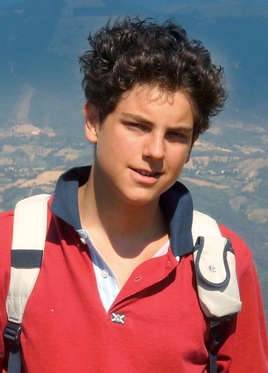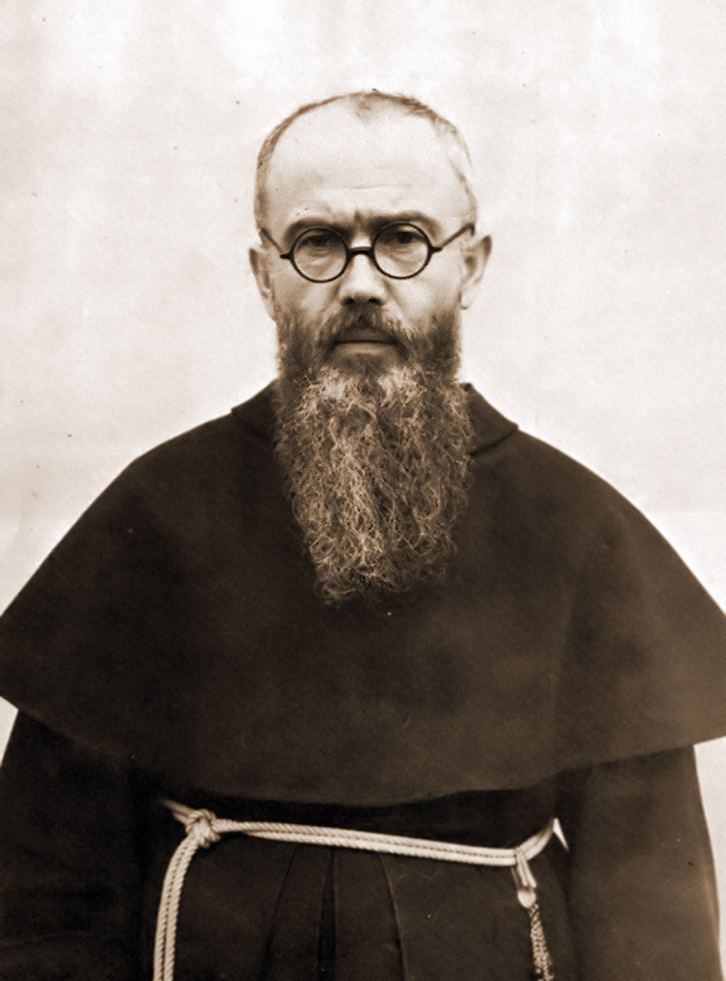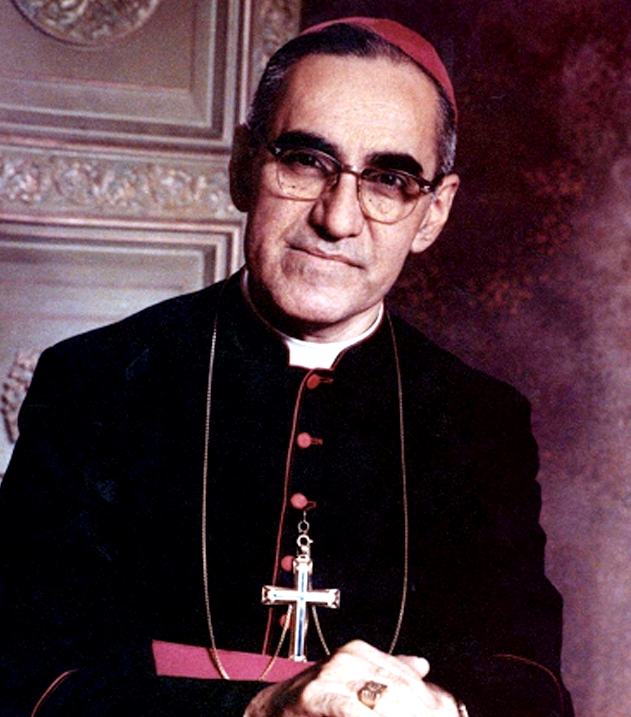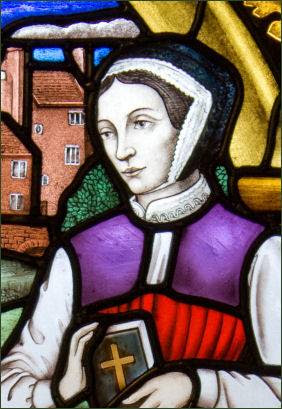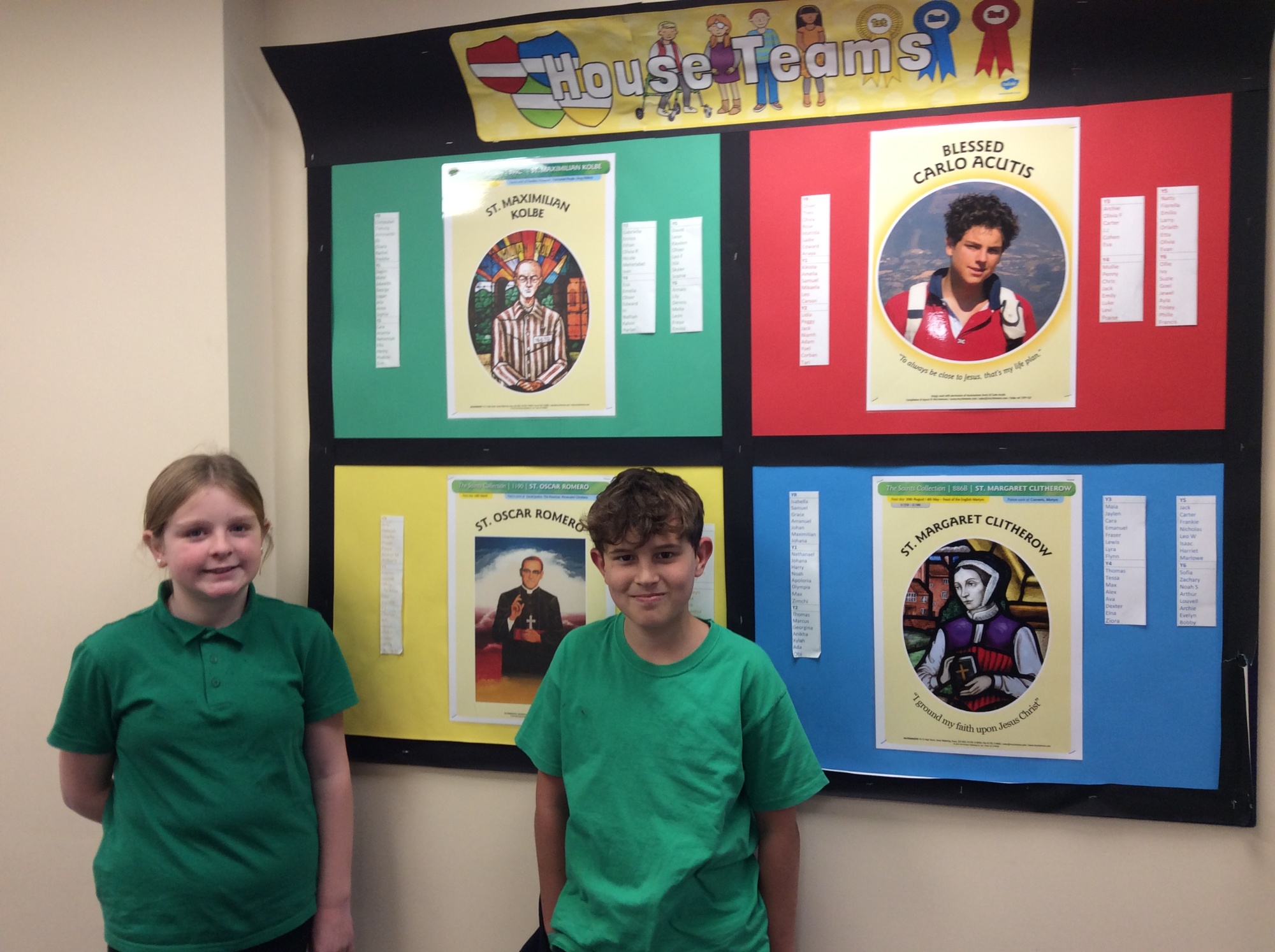House Teams
All children are allocated to one of our house teams - Acutis (red), Kolbe (green), Romero (yellow) or Clitherow (blue). Each house is named after a Saint that we can take inspiration from.
Children join their house for competitions such as sports' day and for special events such as celebrating the life of their Saint. Each house has a house captain. This system helps to create relationships and bonds across our school from our youngest to our oldest children.
Our House Captains
Blessed Carlo Acutis was born on May 3, 1991. In addition to his love for the Church, Acutis was deeply interested in computers and taught himself how to code and build websites while still in primary school. Acutis was also known to give away his pocket money to the poor and to speak up in defense of the disabled. Acutis used his knowledge of computers and coding to build websites for Catholic organisations. When Acutis developed leukaemia as a teenager, he was quoted as saying, "I offer all the suffering I will have to suffer for the Lord, the Pope, and the Church." Acutis died on October 12 2006, at age 15. Carlo Acutis' feast day is October 12, and he is a patron for computer programmers and youth.
St. Maximilian Kolbe was born on January 8, 1894, in Poland. Much of his life was strongly influenced by a vision he had of the Virgin Mary when he was 12. He was a Franciscan friar and once the WWII invasion by Germany began, he became one of the only brothers to remain in the monastery. He opened up a temporary hospital to aid those in need. Kolbe continued to work in his monastery, providing shelter for refugees - including hiding 2,000 Jews from German persecution. On February 17, 1941, the monastery was shut down; Kolbe was arrested by the German Gestapo and taken to the Pawiak prison. Three months later, he was transferred to Auschwitz. Toward the end of his second month in Auschwitz, men were chosen to face death by starvation to warn against escapes. Kolbe was not chosen but volunteered to take the place of a man with a family. During the last days of his life Kolbe led prayers with the prisoners and remained calm. He was the last of the group to remain alive, after two weeks of dehydration and starvation. St. Maximilian Kolbe died on August 14.
Oscar Romero was born on 15 August 1917 in El Salvador. When he was 14 years old, Oscar wanted to be a priest so he went to study at junior seminary. Romero was ordained a priest and returned to El Salvador. He became famous for his sermons. He also did a lot of parish work like visiting prisons, organising catechism classes and working with others in the Church to provide help and food for the poor. Violence increased in El Salvador, as the government and army began killing poor people who stood up for their rights. Romero became Archbishop of the capital of El Salvador. Some rich people were happy because they thought he would stop priests from helping the poor to stand up for their basic rights. But a few weeks later, his friend Fr Rutilio Grande was shot and killed, along with two companions. The following Sunday, Romero allowed only one Mass in the whole diocese - at the Cathedral - where he spoke out against the murders. As the violence in El Salvador continued, Romero continued to speak out. Every Sunday his sermon was broadcast by radio. The whole country listened. Romero’s life was often threatened. In his sermon on 23 March 1980, Romero ordered the army to stop killing people. The next day, a shot killed Romero as he said Mass.
St. Margaret Clitherow was born in England, in 1555, of protestant parents. She entered the Catholic Church later in life. Her zeal led her to harbour fugitive priests, for which she was arrested and imprisoned by hostile authorities during a time when practicing Catholicism was illegal. Every attempt was made to make her deny her faith, but the holy woman stood firm. Finally, she was condemned to be pressed to death on March 25, 1586. Her feast day is October 25th.
